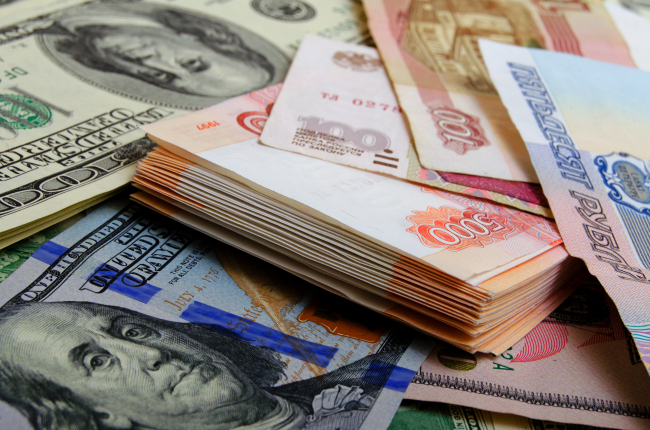Economy
Foreign exchange fluctuations widen: BOK
[THE INVESTOR] Jitters in the financial markets sparked by the US presidential election in November have abated, but foreign exchange fluctuations have more than doubled since the beginning of the year, a central bank report said on Jan. 12.
According to the report by the Bank of Korea on the latest international financial and foreign exchange markets, daily fluctuations in the won-dollar exchange rate widened to as much as 9.1 won per dollar on average during the first 10 days of January from 4 won on average in December.
 |
The daily fluctuation rate rose to 0.76 percent this month from 0.34 percent in December, the bank said.
Wider fluctuations in the foreign exchange rate reflect increased uncertainties over the new US administration’s economic policies and how fast the US Federal Reserve would seek rate hikes, analysts said.
“The Fed said it would seek rate hikes three times but did not make it clear when it would begin. (US President-elect) Donald Trump said he would expand fiscal spending but did not elaborate how much money will be spent and where,” said Shin Dong-su, fixed income strategist at Eugene Investment & Securities.
“Such uncertainties make it hard to predict when the dollar will move in which direction, which raises fluctuations in won as well.”
The won rose sharply to 1,184.7 won against the dollar on Jan. 12, as investors showed disappointment with Trump’s press conference on Jan. 11 in New York, in which he did not unveil any details about his economic policies such as infrastructure investment or tax cuts.
Meanwhile, the BOK said in a separate report that the growth of household loans slowed in December, apparently affected by the financial regulator’s recent move to apply stricter rules on mortgages.
Loans extended to households by banks increased by 3.5 trillion won ($4.1 billion) in December, the slowest monthly growth in 10 months since February last year.
The pace of mortgage loan growth, in particular, has greatly decelerated due to a decrease in home transactions and higher interest rates. The number of apartment transactions declined to 9,000 last month from 11,000 in the previous month, the bank said.
As mortgage borrowers expected interest rates to rise further, they advanced their loans in November from December or January, which also contributed to the slower growth of household lending in December, the BOK said.
Corporate borrowings at banks plunged by 15 trillion won in December alone, the fastest monthly fall since January, 2010.
The rapid shrinkage in corporate lending resulted from banks’ rush late last year to sell or write off bad debts, the bank said.
The BOK is to hold its first monetary policy meeting on Jan. 13 to decide whether to keep the base rate at a record low of 1.25 percent as widely expected in the market.
The bank is also expected to revise down the 2017 growth outlook from the previous forecast of 2.8 percent on the same day.
By Kim Yoon-mi/The Korea Herald (yoonmi@heraldcorp.com)








